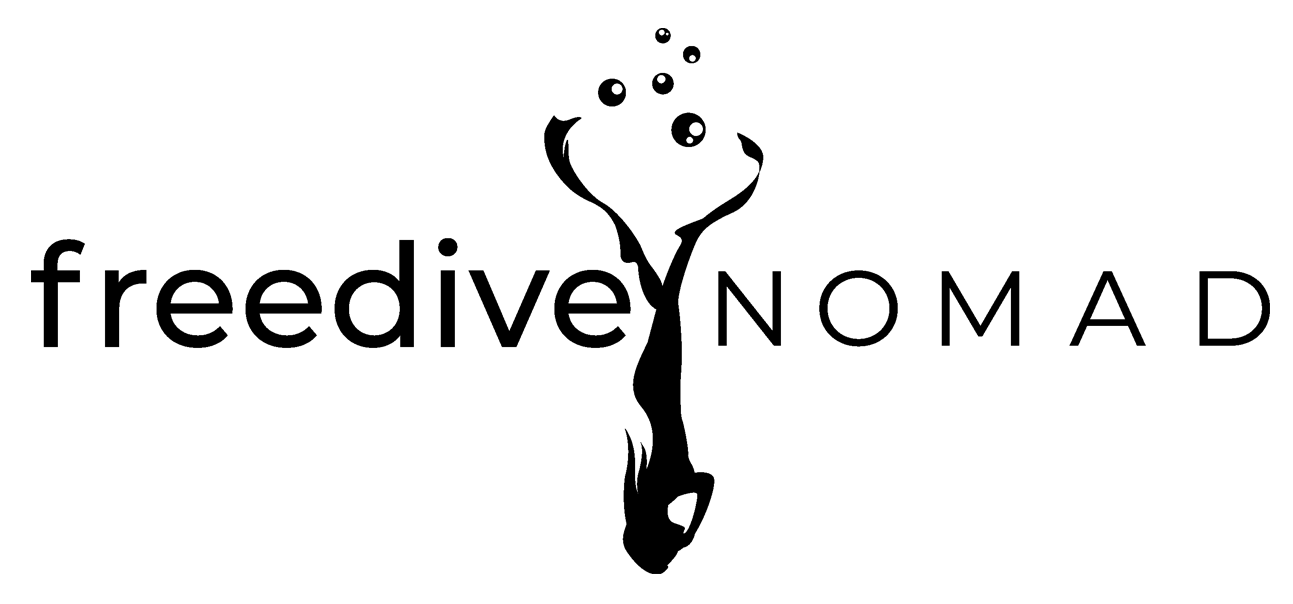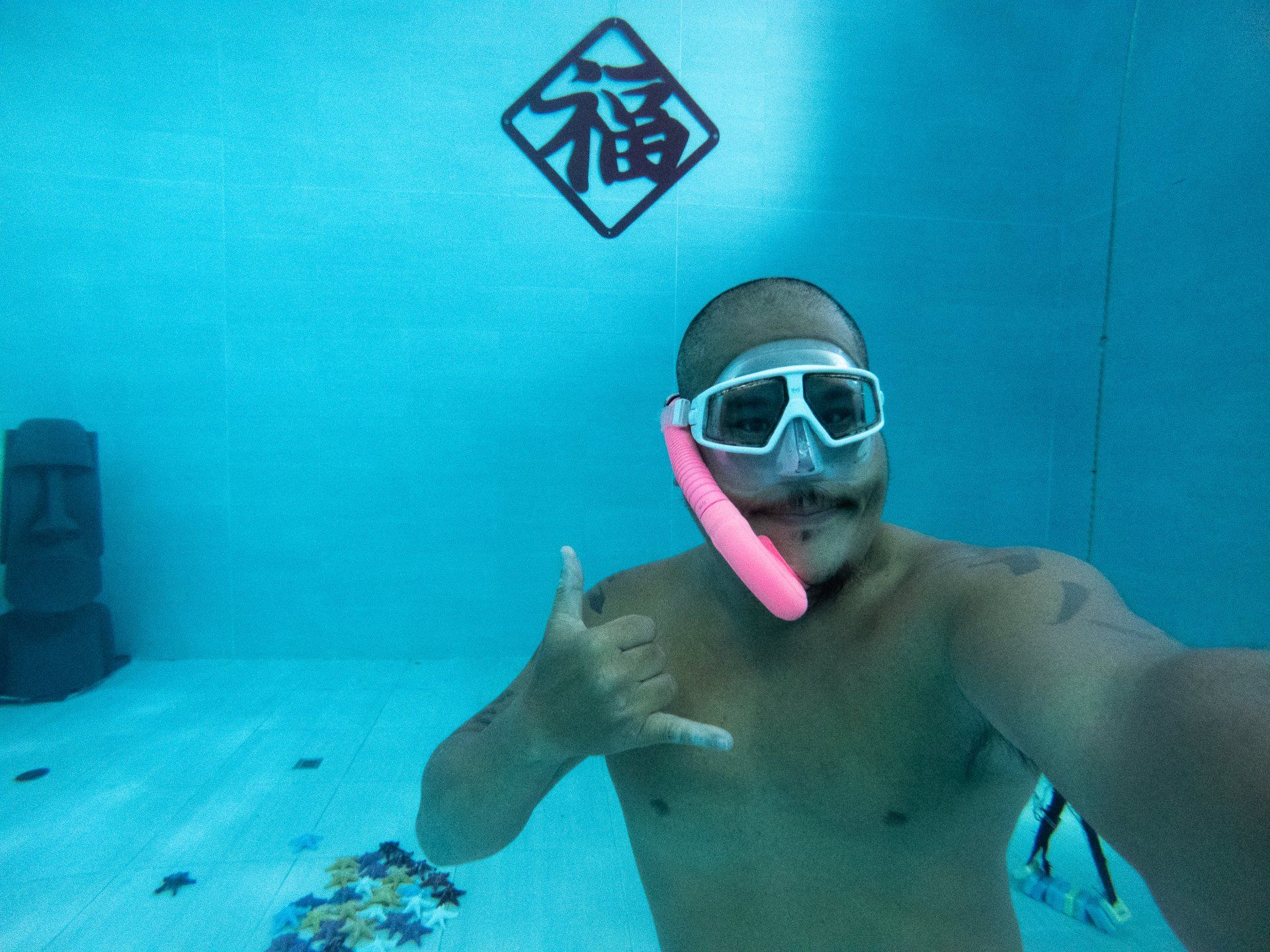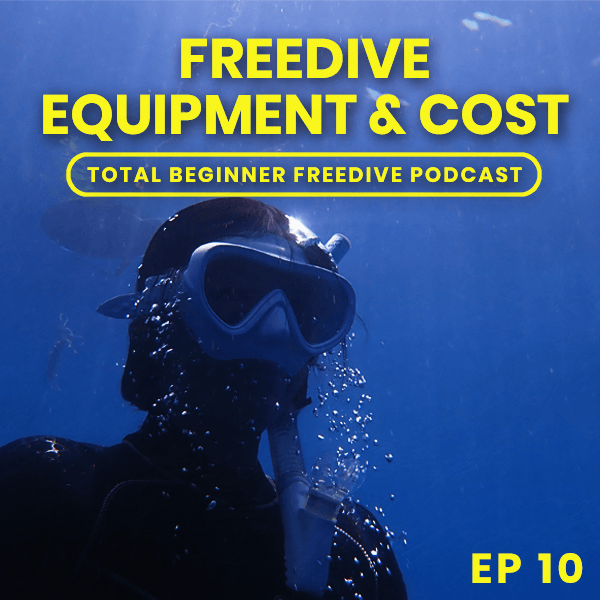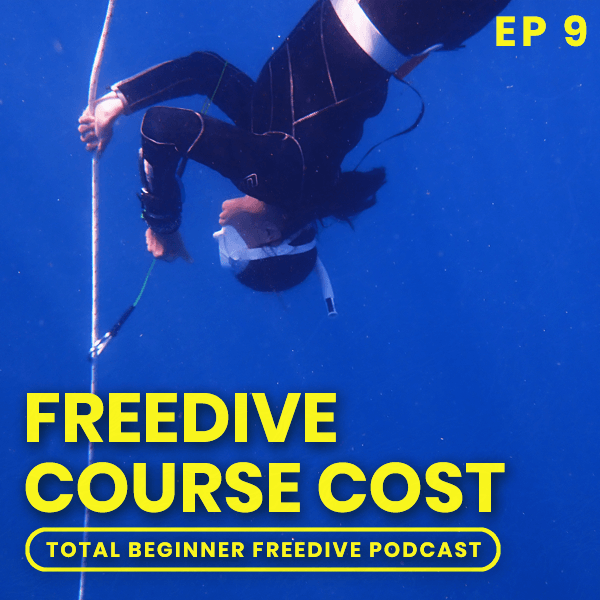Raymond Ko • June 30, 2021
What is Freediving?
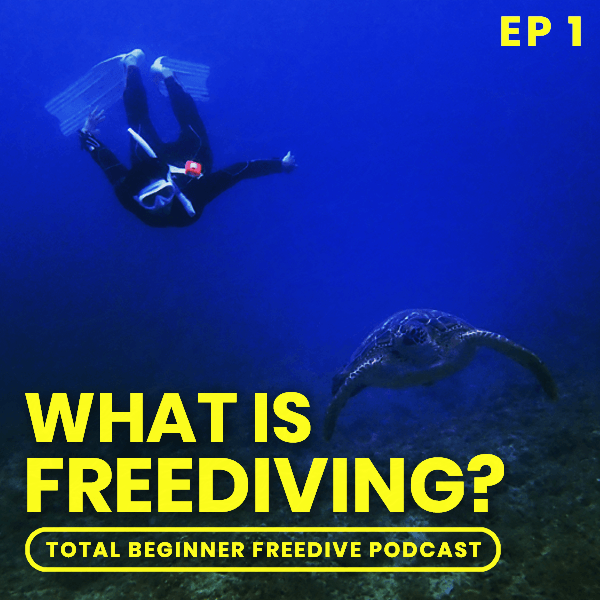
Show Notes
What exactly is freediving? It often gets confused with scuba diving, skin diving and snorkelling.
What else is in this episode?
- Who this podcast is for exactly and the purpose of this podcast
- Learn the first rule of freediving
- Difference between line diving and fun diving
- Peak at future episode topics
- Brief introduction about the show's host, the Freedive Nomad.
This podcast is brought to you by Octopus Freediving
Resources
Facebook Group
Free E-book Sign Up
You can support this show by buying from our affiliates partners:
Waihana Wetsuits - the coolest looking wetsuits using eco-friendly neoprene. Use the coupon code 0OG0UZZBLP for 15% off
Blue Cannatine - the BEST nootropic to get my brain to function optimally after diving. 10% discount with that link.
Synctuition - my favorite meditation app and I've tried A LOT
Episode Transcripts
Hello future freedivers and thank you for downloading this very first episode of the Total Beginner Freediving Podcast brought to you by our partners at Octopus Freediving which make the highest quality freediving accessories.
Welcome to episode #1 where we get into the very basics and answer the question, what exactly is freediving?
Before we get started with the show I wanted to let you know some resources that I’ve created for the inexperienced freediver.
First is a free FAQ ebook I put together from the frequently asked questions you can find on Google, reddit and quora. You can find that at freedivepodcast.com/ebook
And also a Facebook group for this podcast which is a safe space to ask any questions you want on freediving without any judgment and the link to that is freedivepodcast.com/fb. Those links are also in the show notes.
Let’s get started
Hello again, this is Ray, aka the Freedive Nomad and I’ll be the host of this show.
And if you haven’t been able to guess by the title of this podcast, this is for brand spanking new freedivers, ie someone who hasn’t taken a course in freediving yet and thinking about starting their freediving journey but don’t know where to begin.
The goal for this podcast is to educate and inspire anyone and everyone interested in freediving, and for existing freedivers to share this podcast with their families and friends to help understand your obsession and not think that you are crazy.
Learning freediving has truly been a life changing experience for me and many of my fellow freedivers and it can be for you too.
In this episode, we’ll start with the basics. explain what freediving is, a little about myself, then go into a little more detail about some of the topics we’ll go over in future episodes.
Simply put, freediving is exploring the underwater world while holding your breath. Some people get confused between freediving, skin-diving, snorkeling, and sometimes even scuba.
Snorkeling is just floating on the surface with your mask and obviously snorkel as you enjoy the view below from the surface.
Skin diving is like snorkeling, but with some shallow dives. There doesn’t seem to be a consensus definition of what skin diving is, but that’s what it means to me.
Freediving is also known as “breath-hold diving”, “one-breath diving.” or “apnea diving”. Apnea you may know from the medical condition sleep apnea, with apnea derived from the Greek word to mean to deprive of breathing.
Freediving sets itself apart by diving deeper and on one breath.
Scuba Diving requires you to strap a heavy tank of air on your back, a buoyancy device and a regulator awkwardly in your mouth nearly the entire time. This allows the diver to remain underwater for around 45 minutes at a time during a beginner course.
There will always be a friendly debate about which sport is better, which is clearly freediving. But what all divers have in common is our love of the water, the feeling of freedom we experience, the desire to fight for the conservation of the beautiful oceans we have the privilege to dive in.
Now there are two categories of recreational freediving: Line Diving and Fun Diving.
Line diving is used for training purposes. On the water’s surface, there’s a buoy and a rope hanging from the bottom of it with a heavy weight at the end of the rope to pull the rope taut. The line is set at a predetermined depth and the freediver dives vertically using the line as a guide with the bottom as the goal.
This is the first and predominant method of freediving learned when taking a course. This is also more or less the setup used in competitive freediving to see who can dive the deepest on a single breath. Many recreational freedivers engage in this type of diving as a personal challenge as well as a way to enjoy the deeply meditative aspect of freediving.
With the skills acquired from a beginner freediving course, you can move on to fun diving, which as the name implies, is for FUN. When you fun dive, you can use your breath-holding skills to see the fishes and coral up close, explore deeper than snorkeling, or venture into the world of underwater photography or videography The skills learned from a freediving course will make it safer and more enjoyable to go deeper under the water and for longer.
That being said, it is super important that I stress you should never, ever dive alone. This is the first rule of freediving. Always dive with a trained and certified freediving buddy.
So quickly about me.
I am 48 years young and I have spent over 20 years chained to a trading desk at investment banks in Asia.
In early 2019, I was living in Taipei, Taiwan, and had already begun exploring the world of freediving by taking a beginner freediver course.
The difference between the monotonous calamity around me at work and the peaceful, harmonious and INCREDIBLY rich & diverse world below the water’s surface was shocking. I found absolute peace and serenity in my life possibly for the first time ever.
I am not exaggerating when I say that the experience dramatically changed the course of my life. Two months later, I continued with the advanced course. After just passing that course,, fate stepped in and I was laid off from my job. Three weeks later I was on a one way ticket to Indonesia to learn from some of the top freediving educators and competitors in the world to become a freedive instructor.
And now I have found a mission in life other than helping push money around the world like I did in my previous job - to introduce as many people as I can to the potentially life changing experience of freediving.
Originally, I wanted to use freediving as a vehicle for me to see the world and I was doing that, until the pandemic hit and am now based in Xiaoliuqiu, Taiwan - where my freedive journey began.
So enough about me
The aim of this podcast is to put out 2 quick 5-10 minute episodes a week on Monday and Thursday on beginner topics like
Is freediving dangerous?
Intro to freediving equipment
How to find a freedive course and how to choose an instructor?
The mental and physical health benefits of freediving.
How to prepare for a freedive course?
Now if you are interested in starting your freedive journey
Then you’ve got to get in the water and take a class with a certified instructor. That is the safest and most enjoyable way to learn freediving. There is no substitute or short cut.
This podcast will help you decide if freediving is something you want to try and point you towards a course and I am not shy at all at saying this and you will hear me mention it many times in future episodes.
I do need to stress that freediving is considered an extreme sport and it can be dangerous so taking a course is the best way to learn to do it safely. We will go over this in the next episode.
And that is it for this first episode.
But before we cut out I wanted to give a quick shout out to Waihana Wetsuit which, in my opinion, make by far the coolest looking wetsuits out there, and made from eco-friendly neoprene.
If you are in the market for a new wetsuit checkout freedivepodcast.com/wetsuit and check out the show notes for a 10% coupon code. Your purchase will help pay to keep the lights on for this podcast.
If you are in Taiwan or can easily make it to Taiwan and want to learn freediving from yours truly, you can find me at freedivenomadtaiwan.com or my IG @freedivenomad.
